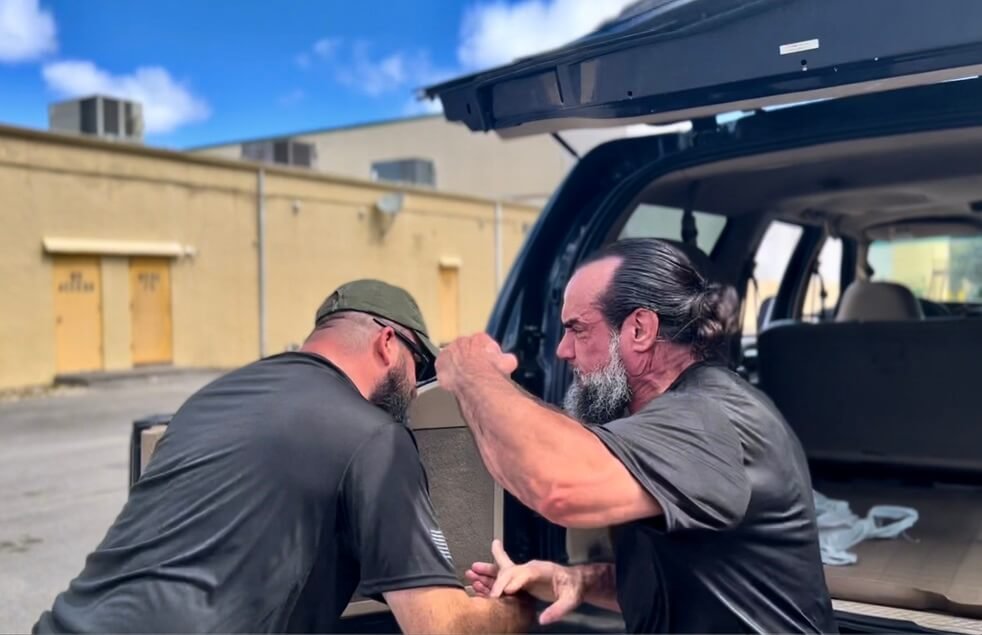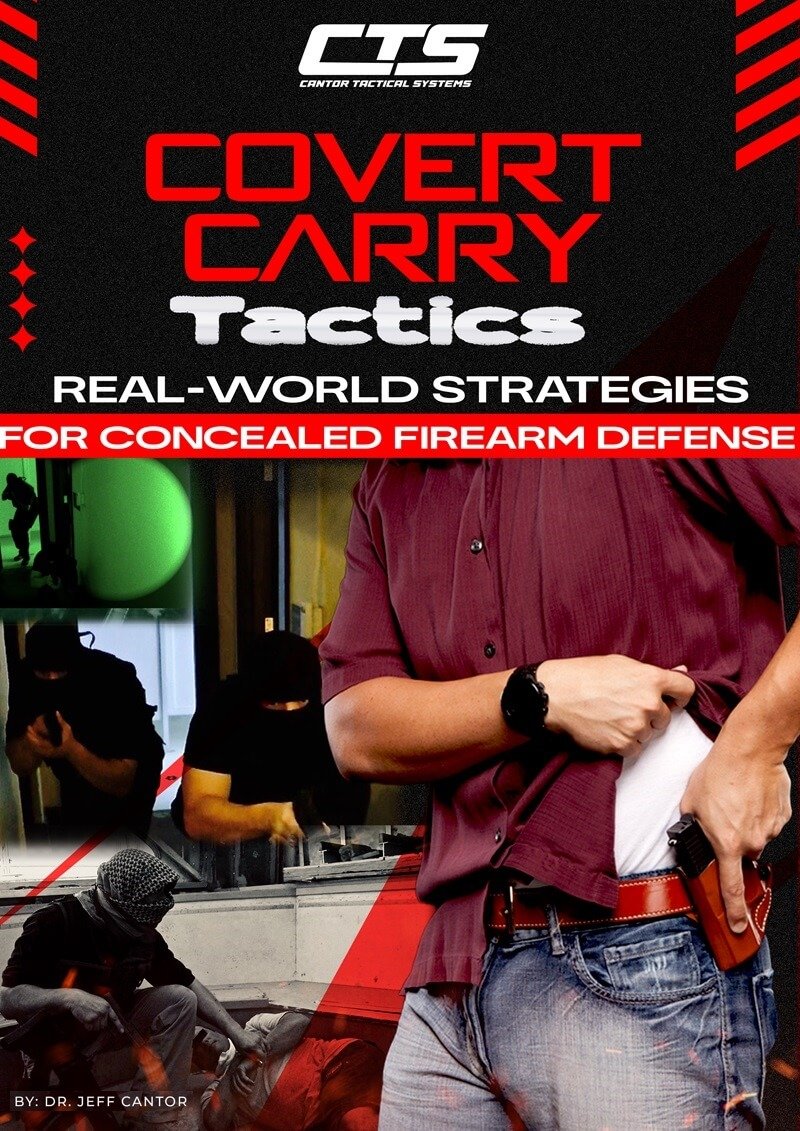Blog
Cool Under Fire: Mastering Composure in Combat

In high-stress conflict situations, such as active concealed carry combat or emergencies, the primary factor influencing survival and effectiveness is not just skill or training, but the ability to maintain composure. This mindset is crucial for operatives, soldiers in conflict zones, professionals in dangerous jobs, or civilians in life-threatening scenarios. General James Mattis has long said to emphasize engaging the brain before the weapon, underscoring the importance of being calm and collected even in dangerous situations. Maintaining composure allows for alertness, focus, and the effective application of skills and logical decision-making. Without this mental equilibrium, panic will likely take over, leading to physical and mental paralysis and with that you could “freeze to death”.
The good aspect of the ability to remain composed under pressure is that it isn’t restricted to trained professionals; it’s accessible to anyone willing to adopt a certain mindset.
It involves a three-step mental process:
- accepting the circumstances,
- deferring emotions to maintain clear thinking, and
- focusing intently on the objective at hand.
These steps can be executed quickly, depending on your mental state and cognitive abilities, and are key to navigating and surviving extreme situations.
Maintaining Composure in Combat: Strategies from the Field
In the operational theater, the difference between survival and catastrophe often hinges on that operative, soldier or law enforcement officer’s ability to maintain composure. When startled, the human body undergoes a series of psychological and physiological changes, profoundly affecting both gross and fine motor movements. Understanding these responses and employing strategies that have been employed effectively by operatives and agents can provide invaluable insights into managing extreme stress in the event your concealed carry situation goes south quickly and you have to act to save your life or that of another.
Psychological and Physiological Responses in High-Stress Situations
When faced with a threat, the body instinctively triggers a ‘fight or flight’ response, releasing adrenaline and cortisol. These hormones prepare the body for immediate action but can also impair your cognitive function and
physical control. Psychologically, this can lead to tunnel vision, auditory exclusion, and time distortion. Physiologically, there’s an increase in heart rate and blood pressure, redirecting blood flow to essential muscles but decreasing dexterity and fine motor skills. This is a natural response and while beneficial in some aspects, can lead to a “freeze” reaction, where you become temporarily paralyzed or “frozen” and unable to think clearly or react.
6 Strategies to Maintain Your Composure When Things Turn Ugly Fast
- Training and Preparedness: Special Operations forces and Covert operatives undergo rigorous training designed to simulate the stressors of combat and conflict. Regular, realistic, high-pressure drills and exercises condition them to respond effectively under stress. This ‘stress inoculation’ helps us perform complex tasks automatically, even when our higher cognitive functions are impaired. The concealed carry community can and should incorporate the concept of stress inoculation exercises into their training regimens. With the CTS Kinetic Flex™ Quick Draw Trainer you can dynamically prepare for weapons based conflict. The system is flexible so that you can practice your weapon presentations static and then when ready, ramp up your training employing a myriad of threat scenarios.
- Controlled Breathing: Techniques like tactical breathing (also known as box breathing) should be learned to help control physiological responses. By taking slow, deep breaths, operatives and now YOU, can lower your heart rate and regain control your body’s natural alarm system, allowing you to think more clearly and maintain fine motor skills when they are needed most.
- Mental Rehearsal: Visualization and mental rehearsal of actions and responses to various scenarios ensure that you can quickly implement strategies without having to think through each step. This mental preparation reduces hesitation and enables faster decision-making.
This is not hocus-pocus as some may think. It has been, and continues to be practiced by tier one operators the world over as well as professional athletes, MMA fighters and business men and women, all of whom have gained extraordinary results.
- Cognitive Flexibility: Training to think creatively and adaptively in various situations is crucial. As an operative we are taught to expect the
unexpected and to rapidly reassess and adjust our strategies as situations evolve…and you can do the same!
- Small-Unit Tactics: Reliance on team members and practiced small- unit tactics ensures that even if an individual is momentarily overwhelmed, the team can continue to function effectively. Trust and communication within a unit can help prevent individuals from freezing up, as they know their team is there to support them. You may not be part of a military or covert ops team or unit, but consider your family and friends as your “team” and teach them…everything from using the buddy system when out and about to good situational awareness so that you have extra eyes and ears.
- Arousal Control: Understanding psychological and physiological responses to stress allows operatives to recognize the signs of over- arousal and they can then take steps to mitigate them. This self-awareness is critical in maintaining composure. Get to know your own psychological and physiological thresholds so that if confronted with a situation that may be potentially overwhelming, you can rapidly change gears to act quickly and mitigate the full effect.
The ability to maintain composure in combat is not inherent; it’s a skill honed through rigorous training and mental preparation. By understanding your body’s natural responses to fear and stress and implementing strategies used by the world’s most elite operatives, you can learn to control your reactions, think clearly under pressure, and increase your chances of success and survival in any high-stress situation. While the average person may never face a combat scenario, these techniques can and should be adapted to manage stress and maintain composure in various aspects of your daily life.



